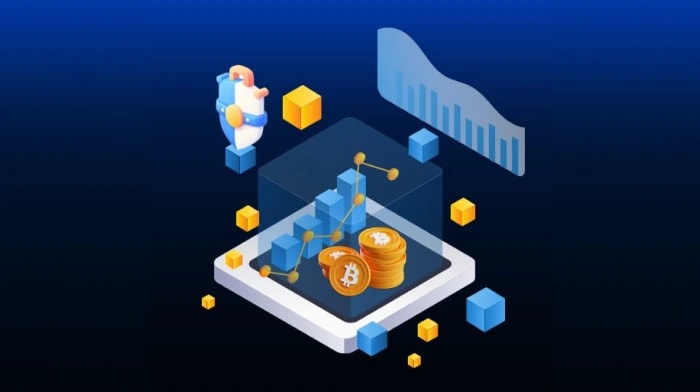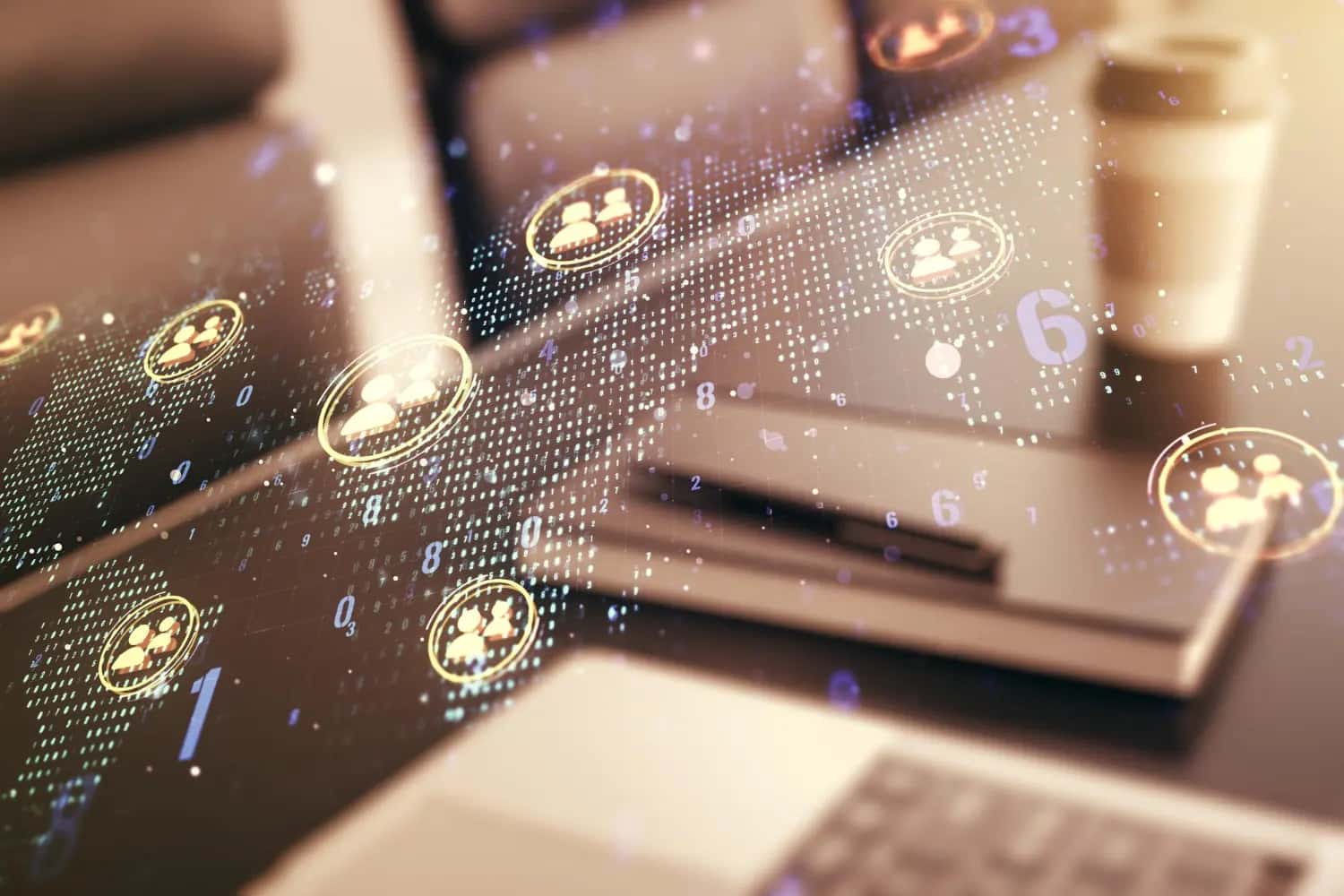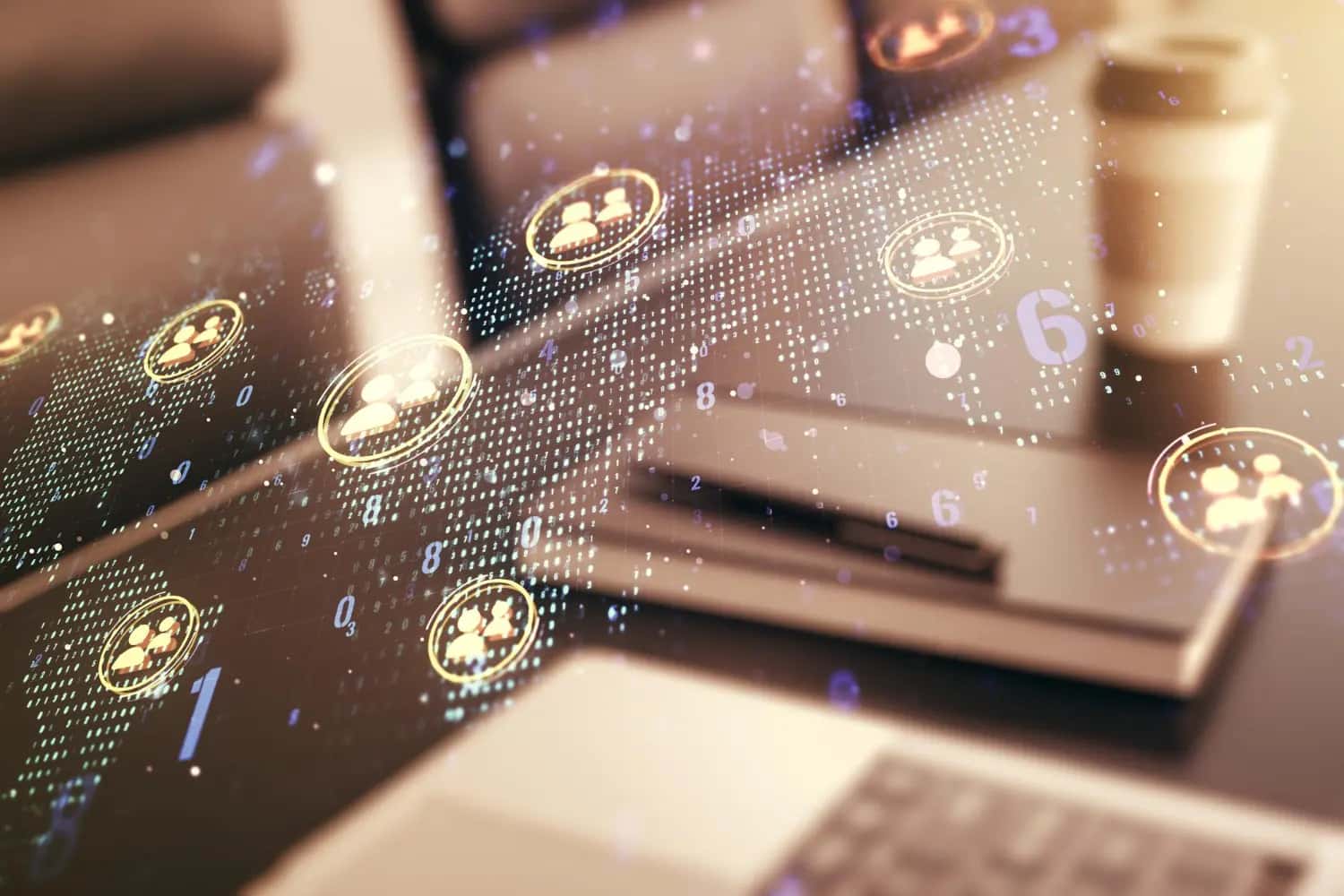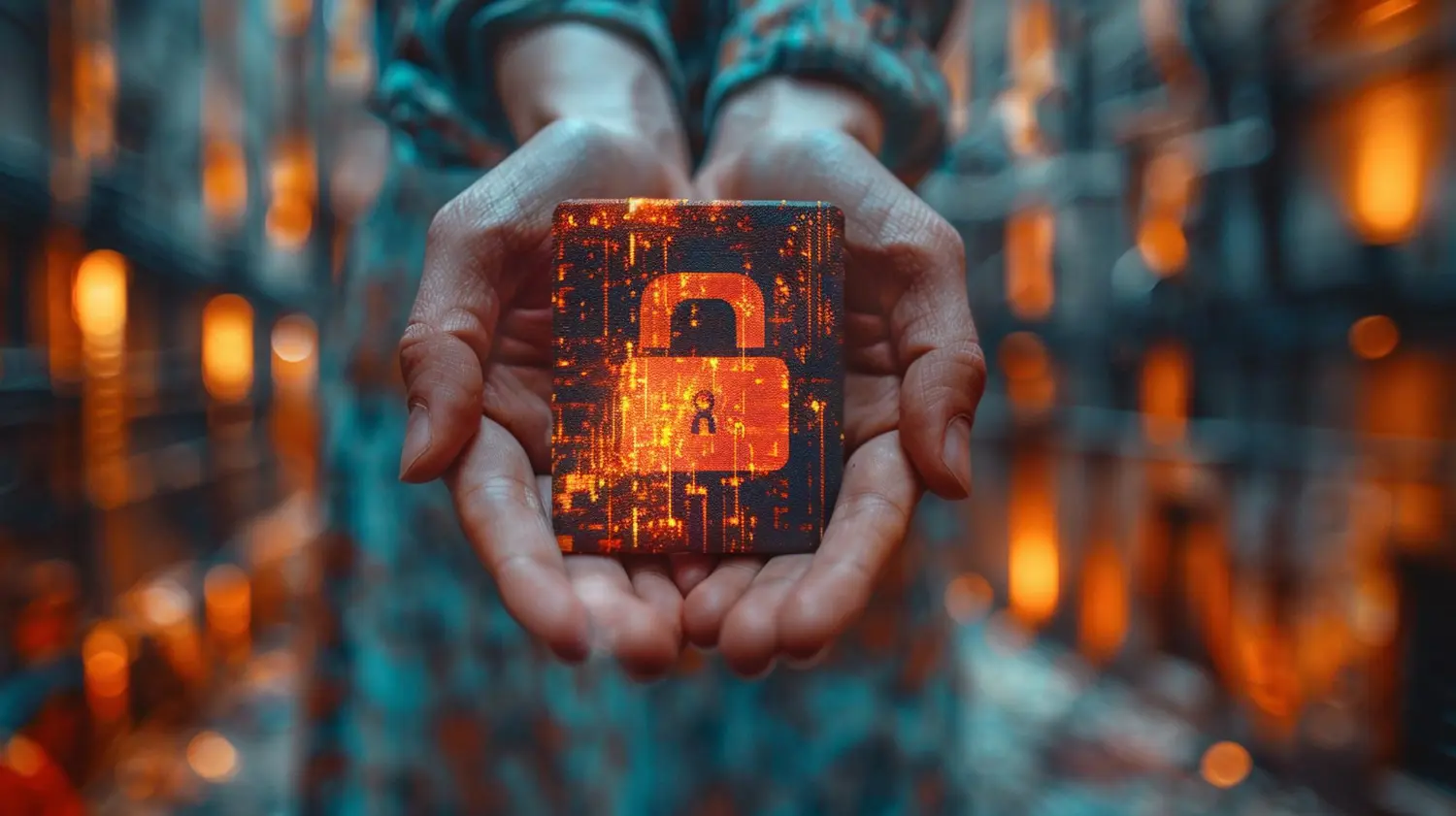
Introduction
Something's clearly holding back innovators and businesses. Their ideas and creations - the kind that should be generating some serious income - are just sitting there not doing much of anything.
The old ways of making money from patents, copyrights and trademarks are cumbersome and slow, with a few people in control. This not only limits what you can earn, it also means great ideas don't always reach their full potential.
A potential game changer here is turning intellectual property into tokens using the same technology that makes cryptocurrencies like bitcoin possible. By breaking down these assets into pieces it becomes easier to buy, sell and trade them, all thanks to the power of blockchain - a system that's basically a super secure transparent ledger.
This approach, known as tokenization, could be just what's needed to unlock the value of all these inventions and ideas.
The Potential of IP Tokenization
When creators can tap into new ways of working with their intellectual property, it opens up a world of possibilities. For instance, they can make it easier to buy and sell the rights to their ideas on a global scale and even find new ways to raise money by breaking down ownership into smaller pieces.
The market for real world assets that have been turned into tokens is expected to balloon to $30.1 trillion by 2034, which means the potential for doing something revolutionary with intellectual property is staggering.
Understanding Intellectual Property Assets
Intellectual property assets are basically ideas or creations that have value and are protected by law. They can be anything from a song or a book, to an invention or a brand name. What sets them apart is that they're the result of someone's imagination and hard work and they have the potential to make money.
Main Types of Intellectual Property
Companies and individuals can own all sorts of innovations and creative works just like they can own physical property. These intangible assets come in several forms:
- •Patents - which cover inventions and technological innovations
- •Trademarks - which protect brand names, logos and other distinctive marks that set a company apart
- •Copyrights - which cover things like written content, music and art
- •Trade secrets - which are business processes and information that companies want to keep under wraps
The law protects these intellectual property rights, which prevents people from using them without permission. At the same time it allows the people who created them to make money from their work, stay ahead of the competition, and even license their creations to others creating new sources of income.
How IP Asset Tokenization Works
The idea of turning intellectual property rights into tokens on blockchain networks is an innovative one. This process, known as IP asset tokenization, is a new way of thinking about intellectual property.
It involves taking the rights to an innovation or creation and turning them into digital tokens that can be stored and traded on blockchain networks.
The Tokenization Process
Secure and transparent representations of ownership are created when intellectual property assets like patents, copyrights and trademarks are transformed. This process makes it possible to easily buy and sell portions of these assets, which was not always the case before.
Some of these assets were hard to sell because they were not easily divided. Now they can be split into parts and made available to more people. The blockchain, a kind of digital ledger, keeps track of who owns what and helps manage licenses and royalty payments.
Step-by-Step Transformation Process
Asset Identification and Documentation
First off, we need to figure out what intellectual property we're actually dealing with. Is it a patent, a copyright, a trademark or maybe a trade secret? The owner of that IP needs to check and document everything before turning it into something that can work with blockchain technology.
Choosing the Right Platform
Next, we have to decide which blockchain platform and token standard to use. It's important to note that different networks have different strengths when it comes to tokenizing assets.
Popular Blockchain Platforms for IP Tokenization
| Platform | Best For | Token Standards |
|---|---|---|
| Ethereum | General purpose tokenization | ERC-721, ERC-1155, ERC-1400 |
| Polygon | Lower cost transactions | ERC-721, ERC-1155 |
| Hyperledger | Enterprise solutions | Custom standards |
Token Standard Selection
The type of standard used can really impact how something functions:
- •For unique intellectual property that you want to turn into NFTs, standards like ERC-721 and ERC-1155 are good choices
- •For fractional ownership where a number of people can own a part of something, then standards like ERC-1400 are more appropriate, especially for security tokens
Smart Contract Implementation
In the next step, smart contracts come into play. These contracts lay out the rules for:
- •Who owns the intellectual property
- •How royalties are distributed
- •What rights the people holding the tokens have
This kind of setup can really streamline things, particularly when it comes to licensing agreements and revenue sharing. Without the need for intermediaries, these contracts can take care of everything automatically.
For instance, if someone streams or licenses a song that's been tokenized, the system can immediately divvy up the royalties among all the token holders based on how much of the song they own. It's an efficient process.
Distribution and Monetization Methods
After a piece of intellectual property like a song has been turned into tokens, those tokens can be distributed through various methods:
- •Direct sales to investors
- •Crowdfunding to raise money for research and development
- •Licensing to others, giving them the right to use the IP
- •Automated royalty distribution through smart contracts
Key Benefits of IP Tokenization
Increased Market Access and Liquidity
Converting IP assets into tokens makes them really easy to buy and sell. This is a major change from the traditional way of doing things, where buying and selling IP can be a slow and complicated process with lots of negotiations and legal hoops to jump through.
Enhanced Security
When intellectual property is tokenized and transactions take place, they're recorded on a ledger that's completely transparent and can't be altered. This makes it extremely difficult for fraud to happen or for anyone to make unauthorized changes.
Streamlined Administration
Smart contracts can automate many of the tasks involved in IP management, which helps reduce complexity. The old way of doing things with licensing agreements and royalty distribution processes used to be time consuming and expensive. Now they're becoming automated and digitized.
Democratized Investment Opportunities
A process called tokenization is breaking down the barriers that used to stop people from investing. It works by dividing up assets into more affordable pieces or tokens. In the past, only big companies or wealthy individuals could afford to invest in intellectual property.
A whole new set of investors, from individuals to businesses, can now get in on the action thanks to fractional ownership. This opens up possibilities for people who might not have had the means to invest before.
Fractional Ownership Benefits
Essentially, tokenization through smart contracts allows multiple investors to chip in and own a fraction of an intellectual property. This makes it way more accessible for people to invest and boosts market liquidity too. Suddenly smaller investors can join in on markets that were previously out of their reach.
Industry Applications
Biotechnology and Pharmaceuticals
These fields are packed with valuable intellectual property that could generate significant revenue. Medical companies are getting a boost from patents, which are opening up new funding avenues and making it easier for research organizations to share their intellectual property.
Entertainment Industry
The entertainment industry is already seeing the benefits of tokenized rights and commercialization through platforms that tokenize creative works. It's not just individual creators who are cashing in - tokenization can also preserve and monetize public domain works and cultural archives.
Technology Sector
In the tech world, companies are finding that tokenization can be a game changer, providing a marketplace for data and new funding opportunities. Breaking down software, source code and complex algorithms into tradeable parts can make a significant difference in how they're managed and protected online.
Real-World Examples
CryptoKitties
They were one of the first to try this approach using a blockchain-based game where players could breed and collect digital cats. These digital cats are actually a form of intellectual property existing as digital tokens that can be bought and sold.
Red Bull Racing
They've teamed up with blockchain companies to create digital memorabilia like unique moments from their racing history. These one-of-a-kind items are a way to own a piece of sports history, and legendary events can be broken down into digital experiences.
Ethernity Platform
This is a space where artists can turn their art into NFTs or unique digital tokens that verify ownership and make it possible to buy and sell them using blockchain technology.
Royal (Music Industry)
Royal is a platform that's specifically focused on the music industry. They help musicians turn their music rights into tokens, which can then be bought and sold by fans and investors. Musicians get new opportunities to make money and music lovers get a chance to invest in something they're passionate about.
Molecule (Scientific Research)
They use tokenization to encourage innovation and collaboration in the scientific community. By turning intellectual property into tokens, Molecule creates an environment where scientists can share and build on each other's work, leading to discoveries and breakthroughs.
The platform gives researchers a way to create Intellectual Property Tokens (IPTs) that represent ownership in their work. These tokens can be divided into parts, allowing multiple people to have a say in what happens to the research.
The Future of IP Management
Blockchain technology has a way of cutting through bureaucracy and getting things done. It does this by setting up transparent systems that make all sorts of procedures more efficient. Because it keeps records that can't be altered, it helps build trust among everyone involved.
Imagine being able to turn a creation like a song, a book or a piece of art into a token that can be stored on a blockchain network. Suddenly it's much clearer who owns what, and that ownership can be divided up and traded in ways that weren't possible before.
This is opening up all sorts of possibilities like:
- •Owning a piece of a copyrighted work
- •Investing in opportunities from anywhere in the world
- •Simplifying the whole process of licensing and paying out royalties
Tokenization is a game changer for innovators, startups and creators. It gives them a way to tap into the value of the things they've made with their minds.


